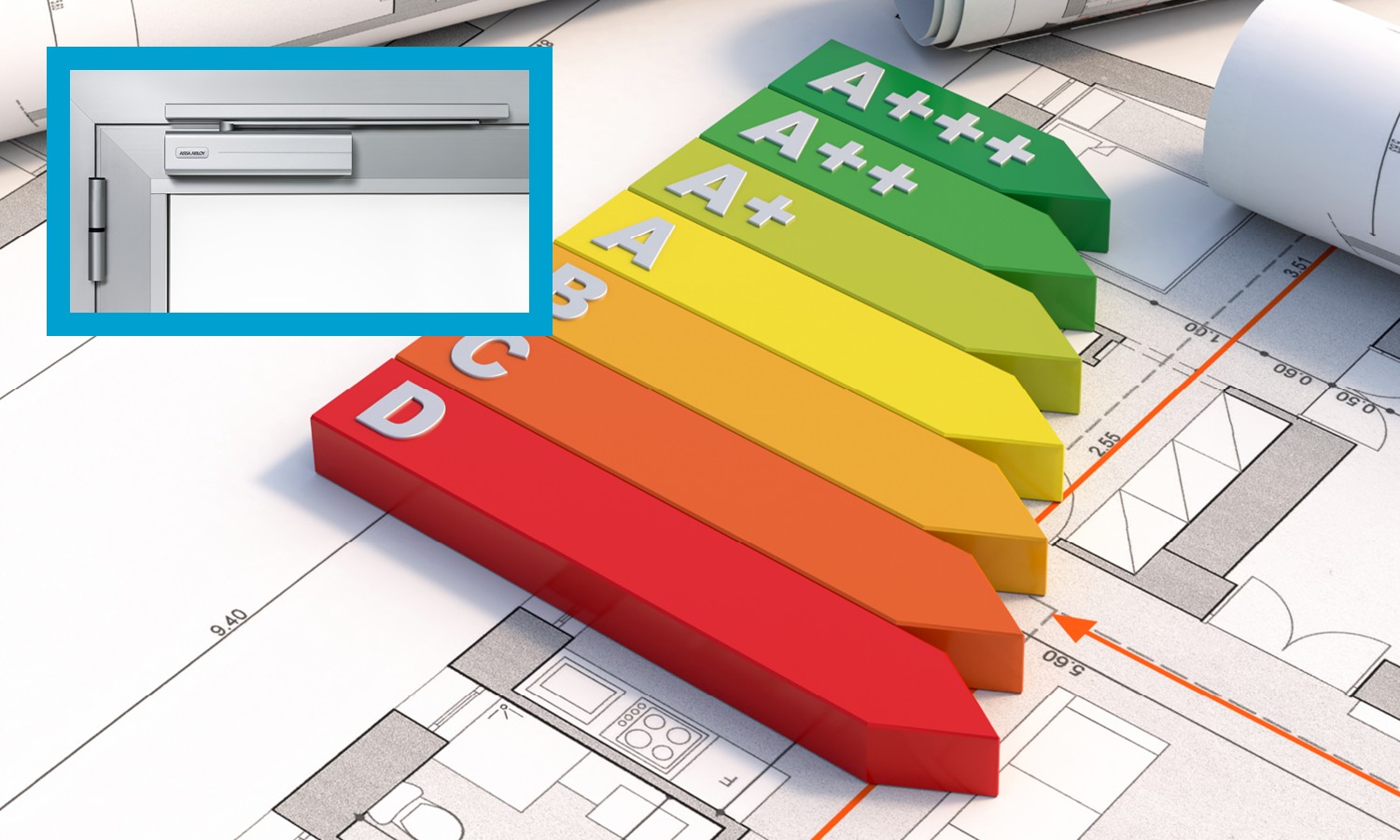A properly shut door provides comfort and protection to whoever is using the space behind it. However, closing doors can have a wider impact on overall building performance. Fully closed doors affect both user security and a building’s energy consumption.
The public spotlight is on energy like never before, as recent measures introduced around Europe show. By law, Spanish offices, shops and hospitality spaces may only heat or cool premises to between 19°C and 23°C1. In France, air-conditioned shops can be fined up to €750 if their doors are left open2.
In fact, a drive to improve energy efficiency across the commercial sector has been under way for a long time. In 2017, the Harvard Business Review was already calling energy efficiency one of the “key levers of business success”3. In the public sector as well as private industry, offices, schools, universities, healthcare centres and more need solutions which boost both sustainability and their bottom line.
Buildings consume around 60% of the world’s electricity4. A simple and effective way to reduce their use and waste — and simultaneously save costs — is to ensure doors everywhere are closed.
The many benefits of a fully closed door
The energy-efficiency benefits of a closed door are simple to understand. It is less easy to quantify the impact, but most scientific studies agree it is significant.
In 2010, Cambridge University estimated that closed doors could reduce energy use in a typical shop by up to 50%5. An engineering journal measured air infiltration through an opening at more than 21 times that of a closed door6.
Inside a building, a closed door helps to maintain important temperature differentials — between an operating theatre and waiting rooms, for example, or a server room and office spaces. Closing doors reduces the energy use to heat and/or cool these separate areas.
Fully closed interior doors also reduce stack pressure — unwanted inward airflow on the ground floor which is caused by rising warm air inside the building. Closed doors help insulate the inside of a building from the elements outside.
“Unfortunately, relying on building users to shut your doors fully, every time, is not a realistic strategy,” says Andreas Gmelin, Product Management and Business Development Director Door Closers at ASSA ABLOY Opening Solutions EMEIA.
“Closed doors help to reduce energy waste. They also improve interior air quality and building security, as well as reducing noise pollution. An affordable, reliable, robust door closer ensures this important job always gets done.”
Superior closing performance with ASSA ABLOY Cam-Motion® technology
Door closers with ASSA ABLOY’s Cam-Motion technology close reliably behind everyone who passes through them. Because an installer can individually set separate latch and closing speeds, high closing force works alongside comfortable opening.
Opening force must be kept low for accessibility, compliance and comfort: Easy opening helps to keep a building barrier-free. Yet closing force should be high enough to ensure reliable closing in all conditions. In an ASSA ABLOY Cam-Motion Door Closer, independent valves enable this configuration.
In addition, these valves have metal heads and are thermo-resistant: Once door speeds are set, they stay set until intentionally modified — even at extreme temperatures.
For user convenience, ASSA ABLOY Cam-Motion Door Closers also offer optional delayed closing, which allows extra time for a user to pass through the door. Back-check function as standard slows the door’s final opening section to protect the frame and prevent banging into walls.
“Door closing is about more than just comfort and fire protection,” adds Andreas Gmelin. “The right door device improves energy efficiency and can reduce your expenditure on heating and cooling.”
To learn more about ASSA ABLOY Cam-Motion® Door Closers, visit https://www.assaabloy.com/group/emeia/solutions/topics/door-closers/technologies/cam-motion



